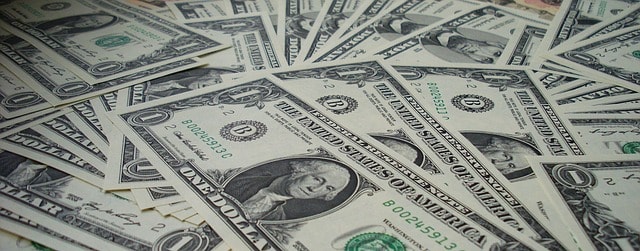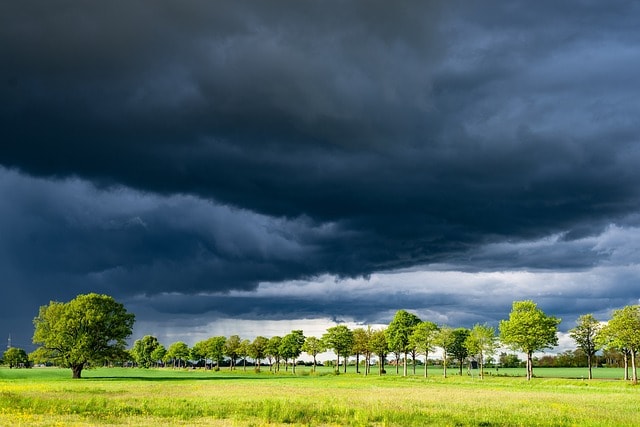
15 Facts About Fair Trade Coffee
Share
Fair Trade coffee is more than a product label: it's a movement advocating for sustainable development, fair treatment of coffee farmers, and ethical trade coffee. While fair trade certification isn't necessarily the only thing you should look for (plenty of coffee is farmed ethically without the label!) it can be a valuable approach to making sure you get coffee that matches your values.
Here are a few fun facts about fair trade coffee.
#1 - There's a Fairtrade Minimum Price For Coffee Farmers

A fair trade certification guarantees coffee farmers a "fairtrade minimum price". This not only acts as a safety net against volatile market prices but also helps to ensure they can sustain their farming practices in the long run.
If coffee prices fall dramatically, this financial security helps coffee farmers cover their production costs and support their families. If prices rise, they CAN reap the benefits of that higher price.
At the time of this writing, the Fairtrade minimum price for natural arabica coffee is $1.75 per pound.
#2 - Fairtrade Coffee Funds Community Projects
This is mostly done through the Fairtrade premium, extra money that fairtrade coffee farmers can invest in their communities. The idea behind the fairtrade premium is that farmer cooperatives can support local communities by building schools, improving healthcare, or reinvesting in farms.
Coffee farmers get to decide what they do with that money, empowering them directly. In 2022, fairtrade coffee farmers received over $90 million in premiums.
#3 - Over 40% of Fairtrade Coffee Farmers Are Organic
Fairtrade coffee puts a strong emphasis on the sustainable development of the industry and environmental sustainability in general. Almost half of Fairtrade coffee production adheres to organic practices.
Organic farming not only produces high-quality coffee but also reflects a special care for local ecosystems. Fairtrade products help fight against climate change by promoting soil health, reducing pollution, and making sustainable farming practices economically viable.
#4 - Fair Trade Reduces Child Labor and Exploitation
Child labor and exploitation are persistent problems in many third-world coffee-growing regions. A Fairtrade certification provides strict labor standards that prohibit child labor and forced labor, protecting the rights of workers and children.
This not only means better working conditions but also allows children in farming communities to attend school instead of working in the fields. And that also gives more weight to the fairtrade premium we discussed earlier.
In the long run, this not only contributes to the long-term health of local communities but also helps grow the coffee industry!
#5 - Fair Trade Promotes Gender Equality
Gender inequality is a persistent issue in agriculture. Not only are women underrepresented in farming operations, but also in decision-making roles that aren't as labor-intensive.
Fairtrade coffee tries to correct that, encouraging women in farming cooperatives to take up leadership training programs and providing support to female entrepreneurs. This way, women are encouraged to participate in all aspects of coffee production, resulting in more inclusive communities.
#6 - The Majority of Fair Trade Coffee Comes from Latin America
Almost 90% of all fairtrade coffee sold comes from Latin America. It's mainly produced in countries like Colombia, Peru, and Mexico, where coffee cultivation has a long history.
Fair trade coffee farmers around the world spend 25% of their premium money on financial benefits for their community, so you can choose fairtrade coffee from these regions to directly support these communities.
#7 - There Are Over 800,000 Fairtrade Coffee Farmers
According to Fair Trade International, there are more than 800,000 small-scale coffee farmers and workers who are part of the Fair Trade system.
In addition to receiving better prices for their coffee, Fair Trade farmers also gain access to international markets, educational resources, and improved farming techniques that contribute to long-term success.

#8 - There Are 656 Fair Trade Cooperatives
Cooperatives are organizations created to bring coffee farmers together. They support cooperation and inclusivity and allow farmers to negotiate better deals for their communities.
Much of the work of coffee cooperatives is securing access to the world coffee market, so producer organizations can easily get their coffee exports to consuming countries like the United States or places like the European Union.
#9 - Europe Is One The Biggest Consumers Of Fairtrade Products
According to Statista, the United Kingdom buys just over 2 billion euros with of fairtrade products. Germany's next, at 1.33 billion euros, and
The United States is the third largest market for fair trade products, behind the UK and Germany. In the European Union, France comes third with sales reaching 561 million euros in 2017.
This illustrates just how much money goes into the fair trade system.
#10 - Fair Trade products Are Growing In The United States
Fair Trade America surveying show that 72% of US shoppers trust the Fairtrade mark, and over 73% of millennials would pay more for sustainable products. This is all supported by the fact that fair trade products like coffee sell out over five times faster than non-certified competitors.
This all goes to show that consumers are demanding more responsibility and higher ethical standards when it comes to the products they love.
#11 - Fairtrade Standards Are Continuously Evolving
The fairtrade certification is not static. Its standards are always evolving to address new challenges in the coffee industry, and organizations like Fairtrade International regularly update their guidelines to reflect changes in global markets, environmental conditions, and labor practices.
This happened in 2011 when Fair Trade International updated its standards on water usage, environmentally friendly practices, and the use of hazardous chemicals. The current version was updated in 2019.
#12 - Coffee Was The First Fairtrade Product
In 1988, fairtrade coffee launched in the Netherlands under the brand name Max Havelaar. The name comes from the protagonist of a famous novel, titled after him.
In the novel, Max is a Dutch civil servant who wants to end the mistreatment of coffee growers in the colonies. It came out in 1860 and takes place on the island of Java, which at that time was under Dutch control.
#13 - Fairtrade Coffee Fights Carbon Emissions
Fair Trade International's partnership with Gold Standard, a leader in sustainable development methods, has helped cut over 650.000 tons of carbon emissions.
This is achieved through the FairTrade Climate Standard, which adds to the Gold Standard certification of carbon emissions reductions and sustainable development benefits.
#14 - Small Farmers Dominate Fairtrade Coffee Production
The average fairtrade farmer operates on just 3.46 acres of land. That's right. Compared to the average family farm size of 231 acres in the United States, fairtrade coffee growers have very small farms.
Small producer organizations tend to stay that way because farms are passed down from generation to generation, and many times the neighboring plot is owned by another family with the same tradition.
Moreover, as cooperatives form and grow, small farmers don't have an incentive to out-compete each other or price each other out of the market. They also don't have an interest in buying everyone else's operation because they already work together.
#15 - Fair Trade Coffee Is World Class
Seriously. We've talked about the Cup of Excellence Awards before, but you should know that these fairtrade cooperatives regularly rank in the top ten out of hundreds or thousands of competitors.
In 2016, for example, the Federación Comercializadora de Café Especial de Guatemala, a regional Guatemalan cooperative, won 8th place in the competition. Their coffee sold for $12.60 per pound, when usual prices can go as low as $1.5 bucks.
They developed their own sustainable farming techniques and have used fair trade as a pathway to improving their coffee quality and their community.
Just One More Thing...
We've talked about the fairtrade minimum price, the fairtrade premium, the fair trade certification standards... we've pretty much covered everything fairtrade related except Philly Fair Trade's coffee.
Philly Fair Trade's Guatemala Coffee
Keeping on topic, our Guatemala coffee is produced by a local cooperative called Manos Campesinas, which has multiple farms in the San Marcos area. This region is dominated by the Tajumulco volcano, which enriches the soil and raises the average altitude quite a bit.
This region averages 200 inches of rain per year, so Manos Campesinas owns its drying patios, which it uses to dry and sort its coffee for export.
This brew's Vienna roast makes it perfect as a dessert, highlighting its caramel notes and sweet body.
Philly Fair Trade's Peru Coffee
Our Peruvian coffee comes from the Finca Churupampa farms, located in the Chirinos region of Cajamarca in Northern Peru. The Tocto family started this operation in 2011, and it has grown to include 30 families, who work together and focus on sustainability.
Back in 2009, the Chirinos community began an incredible organic compost facility that repurposes waste from pulped fair trade coffee cherries. Year after year, Peru produces some of the most impressive coffee, highlighted by the launch of the country's first Cup of Excellence competition in 2017.
As for the flavor, this French Roast offers a rich, smoky profile with subtle hints of cinnamon and toasted walnut.

Philly Fair Trade's Colombia Coffee
Our Colombian fair trade coffee is grown in the Tolima region by producer Diana. Diana employs sustainable farming practices to maintain the health and productivity of her coffee plants. She focuses on practices like regular cleaning, fertilization, shade, and soil health. Diana is also an active contributor to her community. She enjoys collaborating with fellow coffee producers and sharing valuable insights about coffee cultivation.

